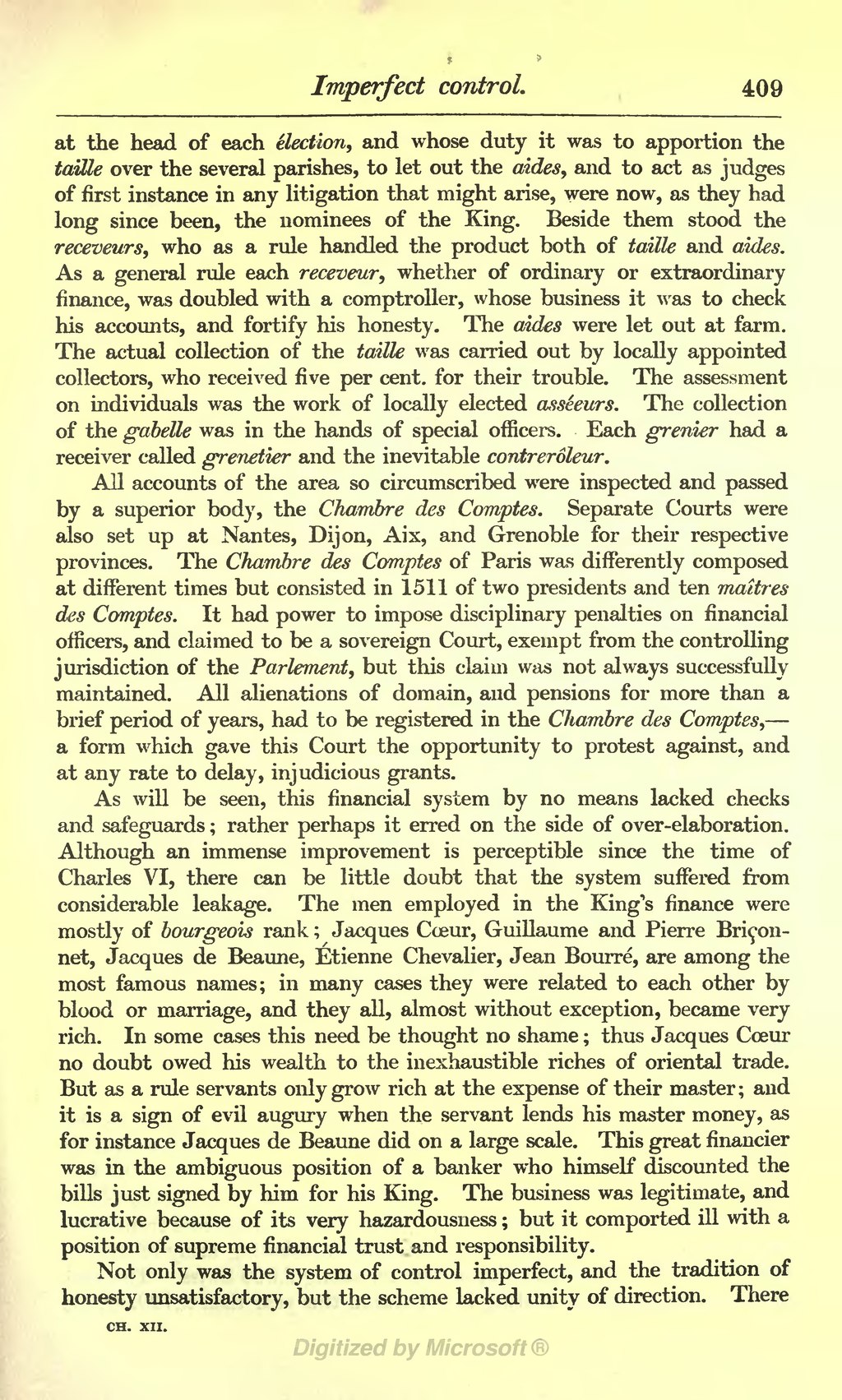at the head of each Election, and whose duty it was to apportion the tattle over the several parishes, to let out the aides, and to act as judges of first instance in any litigation that might arise, were now, as they had long since been, the nominees of the King. Beside them stood the receveurs, who as a rule handled the product both of tattle and aides. As a general rule each receveur, whether of ordinary or extraordinary finance, was doubled with a comptroller, whose business it was to check his accounts, and fortify his honesty. The aides were let out at farm. The actual collection of the tattle was carried out by locally appointed collectors, who received five per cent, for their trouble. The assessment on individuals was the work of locally elected asseeurs. The collection of the gabelle was in the hands of special officers. Each grenier had a receiver called grenetier and the inevitable contreroleur.
All accounts of the area so circumscribed were inspected and passed by a superior body, the Chambre des Comptes. Separate Courts were also set up at Nantes, Dijon, Aix, and Grenoble for their respective provinces. The Chambre des Comptes of Paris was differently composed at different times but consisted in 1511 of two presidents and ten maitres des Comptes. It had power to impose disciplinary penalties on financial officers, and claimed to be a sovereign Court, exempt from the controlling jurisdiction of the Parlement, but this claim was not always successfully maintained. All alienations of domain, and pensions for more than a brief period of years, had to be registered in the Chambre des Comptes,—a form which gave this Court the opportunity to protest against, and at any rate to delay, injudicious grants.
As will be seen, this financial system by no means lacked checks and safeguards; rather perhaps it erred on the side of over-elaboration. Although an immense improvement is perceptible since the time of Charles VI, there can be little doubt that the system suffered from considerable leakage. The men employed in the King's finance were mostly of bourgeois rank; Jacques Cceur, Guillaume and Pierre Bricon-net, Jacques de Beaune, Etienne Chevalier, Jean Bourre, are among the most famous names; in many cases they were related to each other by blood or marriage, and they all, almost without exception, became very rich. In some cases this need be thought no shame; thus Jacques Coeur no doubt owed his wealth to the inexhaustible riches of oriental trade. But as a rule servants only grow rich at the expense of their master; and it is a sign of evil augury when the servant lends his master money, as for instance Jacques de Beaune did on a large scale. This great financier was in the ambiguous position of a banker who himself discounted the bills just signed by him for his King. The business was legitimate, and lucrative because of its very hazardousness; but it comported ill with a position of supreme financial trust and responsibility.
Not only was the system of control imperfect, and the tradition of honesty unsatisfactory, but the scheme lacked unity of direction. There
